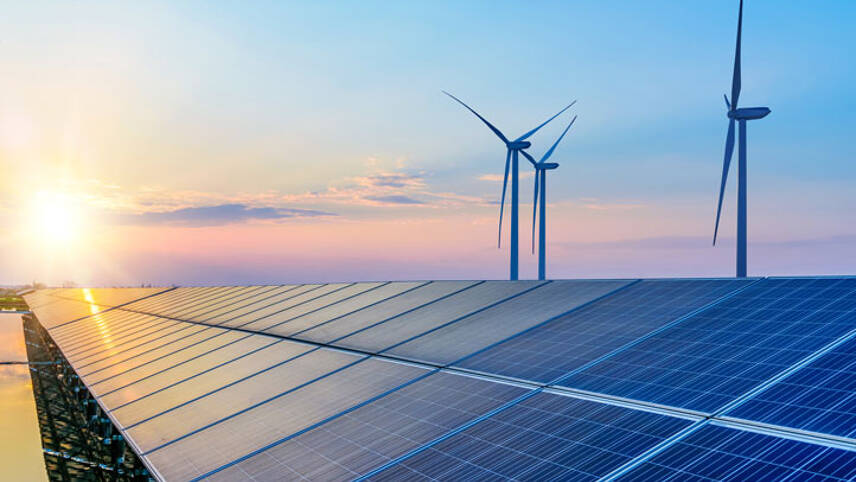Register for free and continue reading
Join our growing army of changemakers and get unlimited access to our premium content

New research from REN21, which has been tracking renewable energy targets, policies and progress since 2005, has found that the growth in renewables worldwide is still being stifled by key bottlenecks in relation to cost, policy and permit and infrastructure issues.
The research notes that renewable energy usage has risen by 58% over the last decade. At the same time, energy demand has increased by 16%, but this increase has been largely met by fossil fuels, which accounted for around 65% of energy consumption growth between 2012 and 2022.
The report cites financial constraints and expensive costs of clean energy in developing countries, alongside grid and infrastructure constraints as issues of major concern.
On finance, global clean energy investment increased by more than 8% last year, reaching around $623bn. However, new research from BloombergNEF (BNEF) notes that spending levels are not yet sufficient to drive the net-zero transition. According to a recent report, energy investments would need to average $4.8trn per year between now and 2030 to align with BNEF’s Net-Zero Scenario.
The REN21 report warns that low-income countries are at a significant disadvantage, with capital costs for clean energy projects reaching 10%, compared to 4% for high-income nations.
Additionally, grid infrastructure across the globe is not yet equipped to handle surging renewable demand., REN21 notes that an estimated 3,000 GW of renewable energy projects remained underdeveloped due to inadequate grid infrastructure, insufficient financing, and permitting delays.
“The world is burning more fossil fuels than ever before, global energy-related emissions are increasing, and ever-growing energy demand is not being fully met by renewables. REN21’s executive director Rana Adib said.
“This is aggravating the climate crisis and derailing the energy transition. We are missing the opportunity to build resilient and inclusive societies by fully deploying the economic opportunities that renewables provide. We must also make rapid gains in energy efficiency to make best use of the energy we consume.”
Tripling targets
At the World Leaders Summit at COP28, more than 100 countries signed up to a commitment to keep the 1.5C pathway of the Paris Agreement alive by pledging to triple global renewable capacity and doubling energy efficiency by 2030, alongside another key pledge to phase out emissions from methane.
At COP28 President Dr. Sultan Al Jaber unveiled the Global Decarbonisation Accelerator (GDA), which acts as a comprehensive action plan to steer nations toward the 1.5C pathway of the Paris Agreement by committing to dramatic clean energy scale-ups and reducing emissions from methane production.
A total of 116 countries have signed up to the Global Renewables and Energy Efficiency Pledge, which will see them aim to triple global renewable generation capacity to at least 11,000 gigawatts and to double the global average annual rate of energy efficiency improvements from around 2% to more than 4% every year until 2030.
Indeed, the REN21 describes COP28 as a “historic win” for renewable energy. Alongside the GDA, the Latin America and Caribbean Renewables Hub, for example, raised its 2030 target for the share of renewables in the region’s total electricity generation from 70% to 80%. The report notes that more developing regions need similar policy frameworks.
In late 2023, the Climate Group warned that common policy gaps exist across multiple regions that are holding back renewables uptake and that in some developing regions corporates were still finding it too expensive to access clean energy.
The report does note that landmark green packages in developed countries, such as the US’s Inflation Reduction Act that has earmarked $369bn for low-carbon technologies, green skills training and climate adaptation, the EU’s green energy plans have helped stimulate clean energy markets.


Please login or Register to leave a comment.